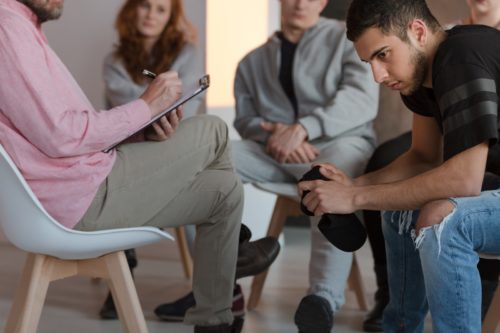Read the latest and greatest from our team
of incredible specialists.

Beach House Recovery Center » Blog » Making Time for Your AA Group
Maintaining strong human relationships is important to physical and mental health, perhaps nowhere more important than when you’re fighting temptations to relapse into addiction. Peers who understand what it’s like are important, especially when your problem drug is alcohol, which non-addicted peers often consume regularly and can’t quite grasp why you can’t handle.
The best way to connect with others in recovery is through an organized support group such as Alcoholics Anonymous (your treatment center should be able to provide referrals, plus advice on alternate programs if you don’t care for the AA approach). However, just as in most relationships, “I don’t have time to go this week” can become a dangerous excuse for falling away from regular attendance. Which can easily lead to falling off the sobriety wagon due to isolation and stress.

Here are a few ideas for those who struggle to find enough time for regular support-group attendance.
KEEP THE BENEFITS IN MIND
There’s a saying, “If you really want to do something, you’ll find a way. If not, you’ll find an excuse.” Many, many people (including diehard teetotalers) have a long list of things they know they should do regularly but don’t, because their values feel more like “nice ideas” than genuine priorities. Contrary to popular opinion:
If you’re in alcoholism recovery and the things you have now include support peers, make the most of your opportunities to connect with them. Instead of worrying about what might happen if you don’t finish every little task in life, focus on how your group encourages you to see the big picture and make your life far more effective.
SCHEDULE YOUR REAL PRIORITIES FIRST
Real priorities include:
Instead of figuring you’ll get around to these things after clearing the chaff from your to-do list, write the most important tasks into your calendar first, and work everything else around them. It helps to schedule the most important things for your highest-energy periods, which for many people fall at the beginning of the day.
In the case of support groups, it may not be possible to find a meeting time during your peak-energy hours. The next best thing is to schedule the rest of your day to conserve energy for the meeting:
PROMISE SOMEONE IN ADVANCE THAT YOU’LL BE AT THE MEETING
Even better, offer to drive a carpool there. Or to be a speaker. Not wanting to disappoint others is among the best motivators.
GO STRAIGHT FROM WORK TO THE MEETING
Stepping through the door of your house/apartment after a hard day’s work tends to activate a “crash” reflex and kill your desire to go back out. If you have an extra hour or two before the meeting, there are ways to make good use of it without going home (or, worse, to a bar):
You could also volunteer to arrive early at the meeting and help set up. Helping someone else, and especially someone who’s helping you in sobriety, is a great use of your time and a means of replenishing your personal energy. And when you have more energy, you’re likely to find you suddenly have more time!
Whether you’re researching for yourself or a loved one, Beach House can help. We understand that this is a serious time in your life and that the treatment center you choose matters. We want you to feel comfortable and empowered to make the right decision for yourself, a friend, or a family member. This is why a counselor is waiting and available to answer your questions and help put your mind at ease regarding the next steps. Many of the staff at Beach House have walked in your shoes. If you feel you’re ready or want more information about how to help a loved one, we can help today. You can also learn why we are voted the #1 rehab for addiction treatment in Florida.
We accept most major insurance plans and can verify your benefits quickly and confidentially.
We’re committed to helping you access the care you need, our admissions counselors can guide you through your coverage options and available resources.





"*" indicates required fields